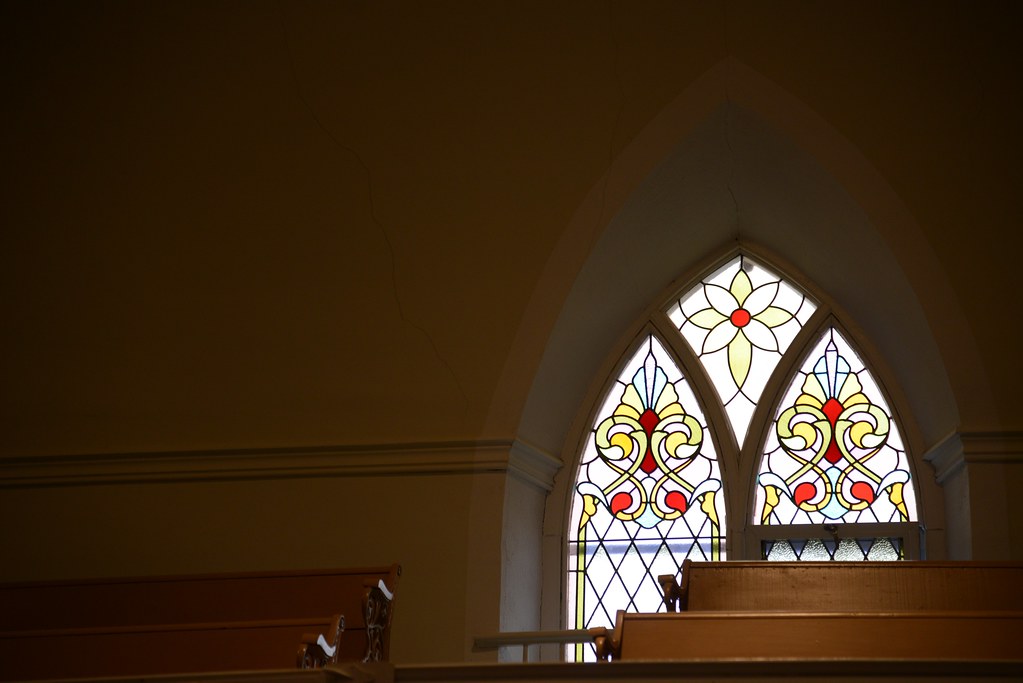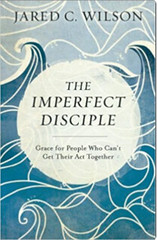Have you ever had to let a dream die? Ever had to let go of something you’d been holding on to that you maybe never really had in the first place? Jared C. Wilson is writing today about how it’s not easy letting go of something you’ve waited a long time for, put your hopes and dreams into, even your blood, sweat, and tears. It feels like a death. But sometimes, by God’s mercy, it feels like really living. Join Jared on the front porch today and let him tell you his wonderfully heartbreaking story…
I recently resigned from pastoral ministry.
Lord willing, I will take it up again someday, but for the moment I am on an indefinite sabbatical from vocational ministry.
I took my first ministry position over twenty years ago, the summer I graduated high school, serving as youth minister for Zion Chinese Baptist Church in Houston, Texas.
I have been in and out of ministry positions over the years, but after leaving our little church plant in Nashville, Tennessee, in 2009 to move to Vermont, I believed we had finally come home.
I was not looking beyond that place. In my heart and mind, I had come to live and die with Middletown Springs Church.
On my last Sunday in the Middletown Church pulpit, February 15, 2015, I preached on Genesis 22. I had begun preaching through Genesis more than a year prior and I saw no reason why my leaving should disrupt the plan.
I didn’t know when I began that journey that Genesis 22 would be the end of the line for me, but the Lord did.
The narrative we find in Genesis 22 is of Abraham taking his son Isaac up the mountain to sacrifice him at the Lord’s command and February 15 was my own journey up the mountain, knife in hand.









In my favorite book on the life of the church, Life Together, Dietrich Bonhoeffer writes:
“When a person becomes alienated from a Christian community in which he has been placed and begins to raise complaints about it, he had better examine himself first to see whether the trouble is not due to his wish dream that should be shattered by God.”
As a pastor, I took the particular section on what Bonhoeffer calls the “wish dream” very much to heart.
The wish dream is basically what the Bible calls idolatry.
And the thing about idolatry, the thing about wish dreams, is that we so identify with them we lose all true bearings about ourselves. Often, we don’t know who we are apart from them.
We all have wish dreams about just about everything in our life—we have wish-dream jobs, wish-dream spouses, wish-dream families, wish-dream lives.
If you find yourself constantly frustrated and seeing all you don’t have, Bonhoeffer actually says this is a good predicament because it puts you on the verge of having your wish dream shattered and finally facing reality.
All of Abraham’s hopes and dreams were bound up in Isaac. Isaac was the child God promised. Isaac was his parents’ wish dream.
I imagine Abraham had a vision for how God’s promise to multiply his descendants and expand his legacy into eternity would play out, and this lonely scenario of taking the wish dream up the mountain to slay it was not it.
When I believed God was asking me to quit my job, I experienced an internal crisis. He might as well have commanded me to put a knife in it.
God asked me to quit. And when He did, He killed my dream.
I knew full well that ministry can become an idol.
But if you had asked me about it at any point before I was contemplating God’s call to leave the ministry, I would have assured you that, of all my idols, ministry was not on the list!
Isaac was, in one way, an idol for Abraham. Abraham’s whole life had revolved so much around the hope of Isaac. So, looking at Genesis 22 leading up to my last Sunday, I dared to ask myself, How would I know what my real idols are?
Well, one of the litmus test questions I’ve been fond of giving out to others in diagnosing idolatry is this: What, if taken away from you, would cause you a great crisis of identity?
I didn’t know how much pastoral ministry was an idol for me until I believed God was asking me to set it aside. I could talk a great game about idolatry, but then God had the audacity to test me on this! He actually asked me to set it aside.
I wanted to know, “For how long, God? For what time?” He wouldn’t say; He still hasn’t said.
And then my worry kicked in.
Because that’s one of the questions I worried about being asked: How long are you going to be out of pastoral ministry? And don’t you know, in the months since my announcement, numerous people have asked me this, with varying levels of concern?
I have been flattered and encouraged by their sense of “missing” my ministry but also greatly cautioned by what I self-righteously perceived in it, as well—namely this: If I’m not in pastoral ministry, what am I?
Like Abraham’s wife, Sarah, I worried about the laughter of others. I worried about their criticism, their questions, their disapproval. That’s a big one for me: disapproval.
But ten years ago God broke into that little guest bedroom where suicidal me was crying and praying my guts out, and He grabbed hold of me and proclaimed by His Spirit, I love you and I approve of you.
I learned there, in the rubble of my dreams for my life, my ministry, my everything—the rubble of myself—that Christ is all and that trying to measure up is garbage.
This is why, for all my screwups as a pastor, all my sins and weaknesses, I can still boast in Christ.
The gospel of Jesus Christ is our only hope and security of enduring approval, of eternal validation, of spiritual fulfillment, of eternal joy.
When my wife and I heard him say, Set this aside. Give this to me, I was thinking of what people would say, all the dreams I had, and how I didn’t want to see those dreams die.
But in the end we gathered up our meager faith and said, “Here we are, Lord. Whatever you want.”
My availability to God’s call to sacrifice—Abraham’s availability to God’s call to sacrifice, your availability to God’s call to sacrifice—is predicated on understanding that God doesn’t need any more messiahs.
He sent One.
The job is finished.
We are not needed. I am not needed.
Ah, but I’m wanted.
That’s liberating, isn’t it? To not be needed but wanted?
What wish dream do you need to put a knife in?
Jared C. Wilson oversees publishing content at Midwestern Seminary in Kansas City, Missouri and serves as managing editor of the resource site For The Church. He served in church ministry for over 20 years and has authored numerous books, including Gospel Wakefulness and The Story of Everything.
Jared’s latest book, The Imperfect Disciple: Grace For People Who Can’t Get Their Act Together, is a discipleship book for normal people, for people like him, who know that discipleship means following Jesus to some pretty difficult places. Jared says this book on discipleship is written for people who don’t feel saved each morning until they’ve had at least two cups of coffee and for the men and women who sit in their small groups wondering if it’s safe to say what they’re thinking. For the sake of the cut-ups and the screw-ups, the tired and the torn-up, the weary and the wounded, The Imperfect Disciple is for you.
[ Our humble thanks to Baker for their partnership in today’s devotion ]








